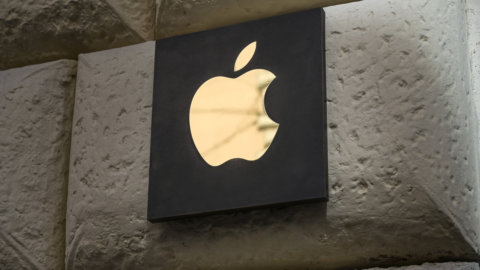ITALY OF BTPs TAKES THE FIELD TOGETHER WITH BONOS AND OAT
AT 11 AM THE FIRST AUCTION AFTER BCE PURCHASES AND THE MOVEMENT
The spotlight of the debt markets turns on Italy for an initial examination after the announcement of the maneuver in its final formulation and "minimalist", Today, in fact, 8 billion ten-year BTPs will be offered at auction, plus another 4,25 billion of securities maturing in 2014 and 2018. .10 percent, higher than the Spanish Bonos analogues stopped at 5,09 percent. An important point of reference because during the week there will also be auctions for Spanish bonds and French Oats. In the last auction in July, 5,77-year bonds leapt to a yield of 4,94 from the previous 30. In the May 4,73 auction, the yield was set at 22 per cent. But during August, as is well known, the ECB intervened in favor of Rome and Madrid with purchases for 70 billion, 1% in favor of Italy, all against precise commitments on the front of rapid privatizations and the return of the deficit to 2012% in 2013 and the balance in XNUMX.
Today's auction will serve to understand whether the markets believe that the maneuver in the final formulation, based on the battle against tax avoidance and evasion (and with the cost cuts of politics and provincial administrations entrusted by a parliamentary procedure with unpredictable times but still long) is able to guarantee these objectives or not. After the judgment of the market, it will be the turn, on 8 September, of the Eurotower board of governors. Yesterday Jean-Claude Trichet, speaking to the European Parliament, underlined that “purchases of government bonds on the secondary market cannot be used to circumvent the fundamental principle of fiscal discipline". But the maneuver, as it emerged from the Belusconi-Bossi-Tremonti summit, seems made on purpose to provide arguments to opponents, including the new president of the Bundesbank Jens Weidmann: purchases on the secondary market are negative because they push countries in difficulty to postpone virtuous measures. Objection which is also based on another consideration: the accounts for the maneuver are based on the assumption of growth higher than that forecast by the IMF for Italy (0,8% this year, 0,7% for 2012), a as it could push the breakeven target for 2013 by nearly a point.
Already today, on the occasion of the hearing in the Senate of the deputy general manager of the Bank of Italy Ignazio Visco, we could have an initial assessment by the staff of Mario Draghi, co-author of the letter to the government by ECB president Trichet, on the impact of the maneuver and on the Italy's growth prospects.
THE WAVE OF RAISES CONTINUES IN ASIA
THE NIKKEI +1,5% GREET THE NEW PREMIER
The Nikkei 225 scores a 1,5% rise on the day of Finance Minister Yoshihiko Noda's appointment as premier. Korea's Kospi index climbs 0,9%, MSCI Asia Pacific is up 1,5% on a trading day halved by the holidays. In fact, the markets of Singapore, Indonesia, Malaysia and the Manila Stock Exchange are closed.
A scoop from the Yomiuri newspaper gives wings to Sny +4,5& Toshba +3% and Hitachi +2,2% - The three companies will form a joint venture to bring together the production of liquid crystal displays.
China Construction Bank shares are in great turmoil in Hong Kong, up 4,3% after the news of Bank of America's sale of the package in China's second largest bank.
GREEK WEDDING AND BOFA GIVE SPRINT AT WALL STREET (+2,26%)
THE GROWTH OF CONSUMPTION AWAY THE RISK OF RECESSION
Shares of the National Bank of Greece rallied 36 percent on Wall Street, higher than the already staggering 29 percent gain on Athens stock exchange. This rise is enough to give the measure of the impact that the Greek marriage between Alpha and Efg Eurobank had on the mood of the American markets refreshed by the passage of Irene. No less relevant is the exploit of Bank of America, revitalized by Warren Buffet's magical touch. After the 5 billion dollars invested by the CEO of Berkshire Hathaway, Bofa collected 8,3 from the sale of China Construction Bank shares. The consequence was a rebound of 36 percent in less than a week which eliminated the rumors about the bank's difficulties.
The US Stock Exchange has interpreted the birth of the new Greek bank as the signal that something is finally moving in Europe. The data on the trend of consumption in the USA did the rest, contributing to the return of investor confidence: in July, personal spending rose by 0,8% from -0,1% in June, against economists' expectations of +0,5%. It is the best result for five months, a number that removes the specter of the recession that only a few days ago was considered probable.
The result is that, in the end, Standard & Poor's was up 2,83% to 1.210,09 points. The Dow Jones Industrial closed up 254 points, or 2,26% to 11.539 points. Finally, the Nasdaq, up 82,26 points to 2562 points +3,32%. Since the lows of August 8, the S&P index is up 8 percent, the Dow 7,24%.
ANTI-INFARCT PILL ANNOUNCED
PFIZER AND BRISTOL MYERS TO THE STARS
On the first day in which financial operators did not risk a heart attack, two Big Pharmas made an epochal announcement, Eliquis and Pradaxa, both blood anticoagulants resulting from research of Pfizer and Bristol Myers, has achieved brilliant results in the prevention of heart attacks for those suffering from heart disease. In particular, the tests presented yesterday at the European cardiology congress in Paris show that these medicines (pills that must be taken twice a day) can reduce the risks by 31 percent compared to the drugs currently on the market.
The news had its first echo on the Stock Exchange: Pfizer achieved a rise of 2,7 percent, Bristol Myers of 1,8%. The two giants aim to control a market worth 9 billion dollars a year.
FIAT. ANT LEAVES, SISTINE ARRIVES
MEDIOBANCA. DELLA VALLE RISES TO 1,9%
After the holidays, corporate Italy starts again. And the first news arrives. Andrea Formica, ex Toyota, pays the consequences of the sales crisis of the Fiat Chrysler group in Europe. In place of him as head of sales in Europe for Fiat / Chrylser comes Lorenzo Sistino who will be part of the team reporting directly to Gianni Coda, head of the group in Europe.
Meanwhile, on the Mediobanca front, confirmation arrives that Diego Della Valle, "through subsidiaries of the group", has increased his stake in Mediobanca from 0,48 to 1,9%, close to the maximum threshold of 2% envisaged for covenant members.
IN EUROPE THE BULL REWARDS LE BIG CAP
ON THE SHIELD BANKS AND CYCLIC SECURITIES
Positive day for the European stock exchanges which implemented a good reaction after the negative closure on Friday. In Milan, the FtseMib index rose by 2,3%, Paris gained 2,2%, Frankfurt +2,3%.
It was the day of the “Big Caps”. All 30 freshmen of the Dax 30 in Frankfurt closed the session with a positive sign. In Paris, 38 companies of the Cac 40 did the same. Only a slight downward correction by Banca Mps (-0,12%) prevented the en plein for the 40 Ftse/Mib shares in Milan.
Today, a positive interpretation of the words spoken on Friday in Jackson Hole by Fed chairman Ben Bernanke prevailed in Europe too: the decision to postpone the decision on any new stimulus measures until September means that the US economy is not so weak as to require immediate action.
Today's data on the trend of consumption in the US contributed to the return of investor confidence. In July, personal spending rose by 0,8% from -0,1% in June, against economists' expectations of +0,5%.
On Wall Street in the middle of the session, the Dow Jones advanced by 1,5%, S&P +1,7%, Nasdaq +2,3%.
In Europe, the best performing sector was the construction sector, with the Stoxx index up 3%. Utilities +2,3%, tech +2,2% and banks +2% also performed well.
Construction did very well in Milan too: Buzzi +4,1%, Impregilo +4,9%, Italcementi +3,7%..
Banks, in particular, benefited from the announcement of the merger in Greece of Efg Eurobank and Alpha Bank, respectively the second and third largest banks in the country. The deal helps strengthen the country's financial system and was welcomed by the market with both stocks up 29% and National Bank of Greece, Greece's leading bank, also rose 29%.
In Switzerland Credit Suisse e Ubs rose respectively by 4,7% and 4,5%, in Paris SocGen and Bnp gained 4,4% and 3,4%, Deutsche Bank +3,6%.
In Milano Intesa, Banco Popolare rose by 3%. + 2,4% UniCredit +2,3%. Mediolanum makes a big leap in asset management + 5,3%.
But, at the end of such an effervescent day, there are many blue chips that deserve a mention. An important contribution to the rise in the Milanese index came from utilities, starting with Enel, which gained 2,8% despite investors still waiting to know how the tax burden of the Robin Hood Tax will be defined. A2A rose by 3,8% While awaiting an agreement with Edf on Edison +4,2%. Snam is also uphill +2,3% and Terna +2,4%,.
Oil rises in the wake of crude oil, with Brent rising to 112,4 dollars a barrel. Eni gained 2,5%, Saipem 2,2%, leap by Saras +6,9%.
Industrial stocks were all positive, from Stm +3,9% to Fiat Industrial +2,5%, from Pirelli +2,3% to Ansaldo +3,4%, from Finmeccanica +2,7% to Fiat +1,4%.
The good quarterly results announced today pushed Exor, the Agnelli holding company, which gained 4,3%.
RELAYS 1/ OBAMA PROMOTES ALAN KRUEGER
A WORKING EXPERT AT THE HEAD OF THE ECONOMISTS
Alan Krueger, one of the best known American labor economists, is today the new chief of the economic staff of the White House. Krueger replaces Austan Goldsbee who returns to teach at the University of Chicago which in turn had taken over from Christina Rohmer.
Krueger is not new to Washington: in the past he worked with the Clinton administration and played a decisive role in the adoption of the "cash for clunkers", ie the provision on scrapping which favored the recovery of the car industry. He was also the author of the provision for incentives for small businesses, harshly criticized by the Republican right but also by the liberal side, which considered them an absolutely inadequate remedy given the seriousness of the crisis. The appointment of him proves it anyway that Obama intends to concentrate the efforts of his last part of his mandate on the problem of employment, adopting adequate measures for the (modest) administration coffers.
RELAYS 2/ NODA PREMIER OF JAPAN TODAY
GOALS. STOP THE YEN, INCREASE VAT
Today Finance Minister Yoshihido Noda will be appointed prime minister of Japan, the fifteenth prime minister since the Heisei era, that of the great boom that ended in 1989, leaving the Japanese economy grappling with a crisis that has so far resisted all the therapies.
Premier Noda, viewed with great suspicion by Beijing and Seoul for defending the right to honor the fallen (including war criminals) commemorated at the Yasukune temple, will implement, as promised, the tax reform that should reduce Tokyo's formidable public debt, 220 percent, which is accompanied, surprisingly at first sight, by a strong yen, the highest since World War II, and companies with a strong cash available: two thirds of the 70 most capitalized companies in Japan boast, another oddity, CDS lower than that required by the market for bonds issued by the State.
Noda should implement a therapy based on the increase in VAT, currently at 5 percent, with the risk of further depressing consumption. The real challenge, according to the Financial Times, will therefore be to reawaken the "animal spirits" of Japanese capitalism which for thirty years have practically avoided risky investments within the Rising Sun.
In other words, to convince public opinion that the Endaka (i.e. the phenomenon of the strong yen) has many drawbacks: the importation of deflation, the stimulus to invest only across the border, the use of Japanese savings for the exclusive benefit of the carry trade, drug of the financial markets that only fuels speculation. A difficult challenge because it won't be a joke to reawaken the "animal spirits" of an aging population.




